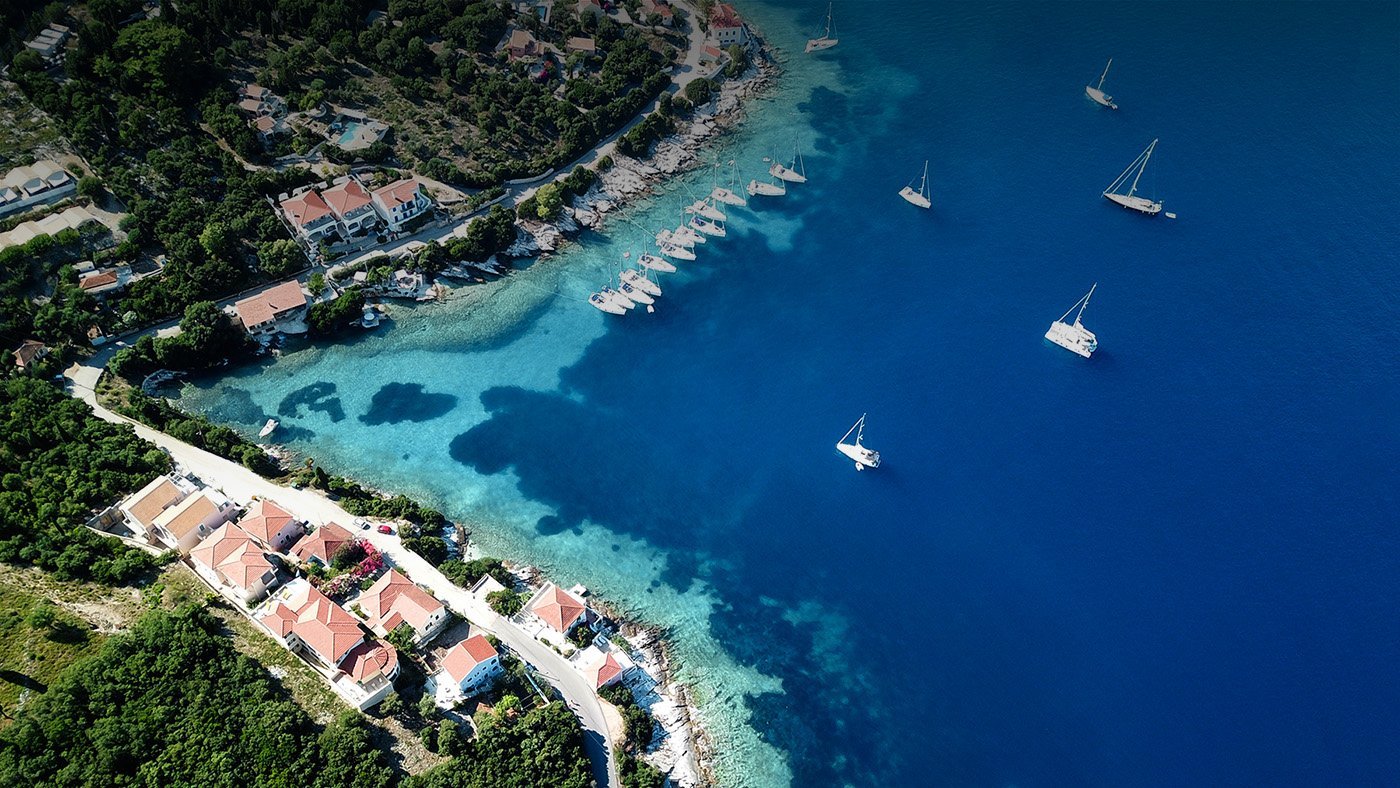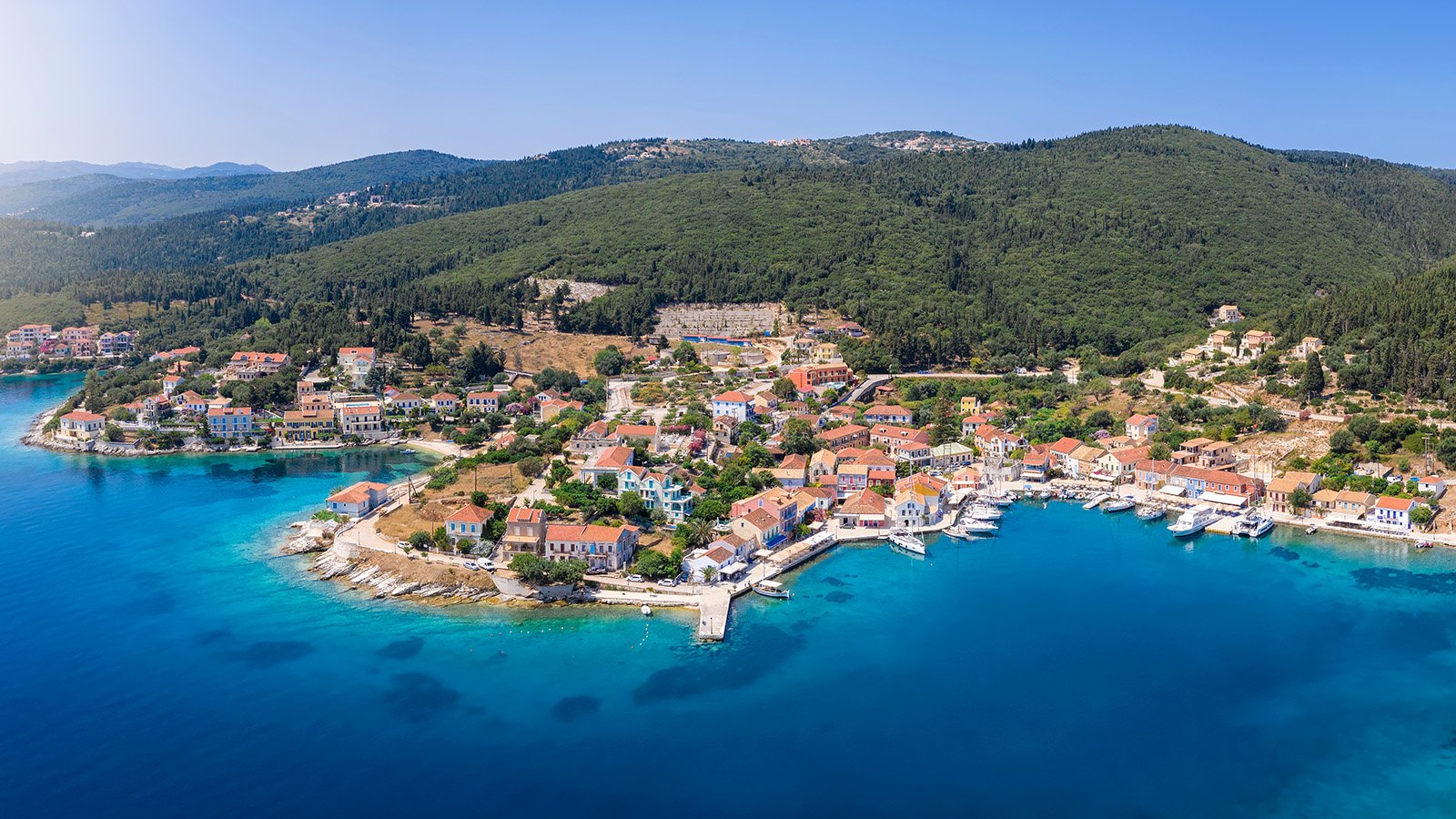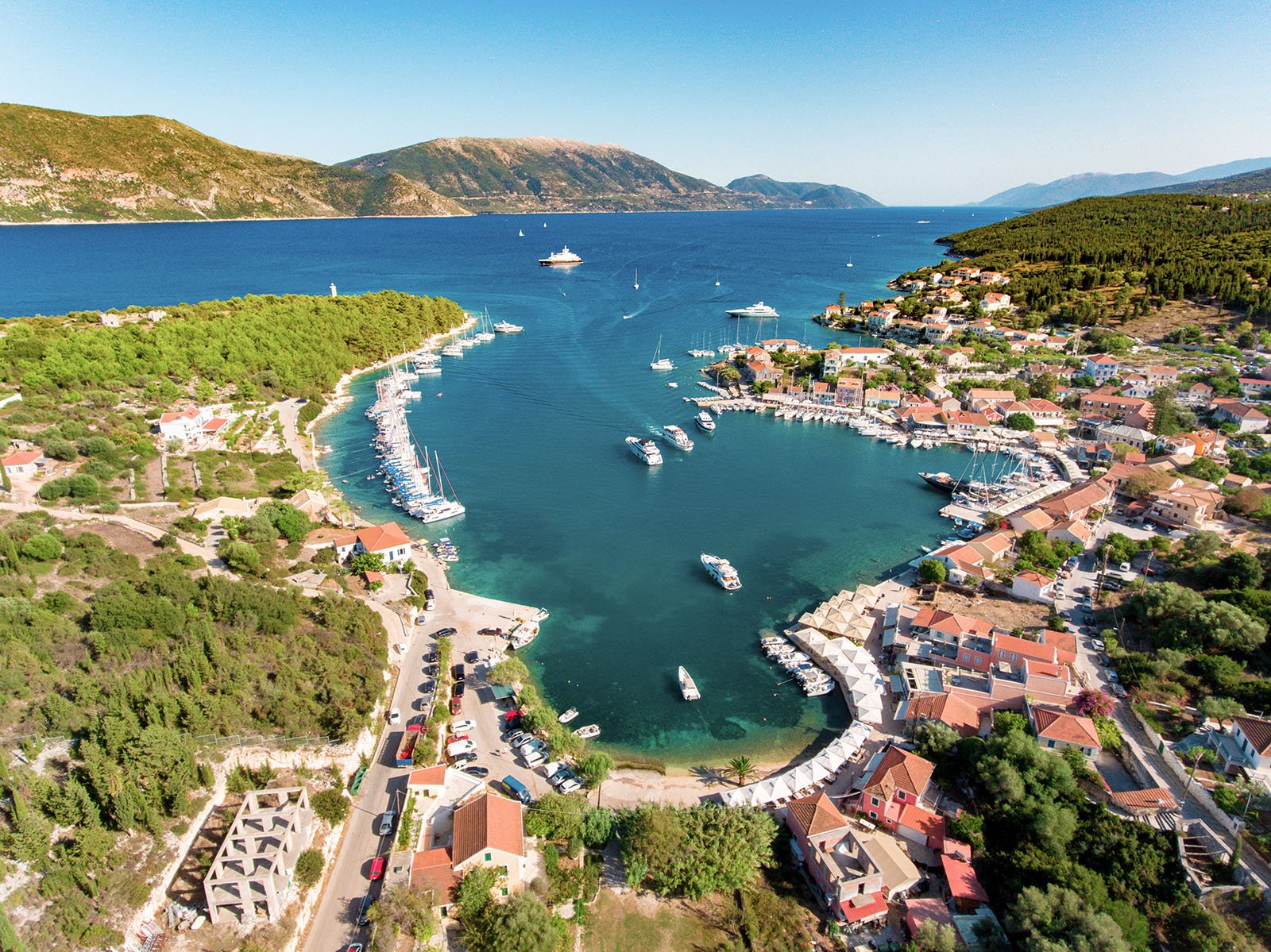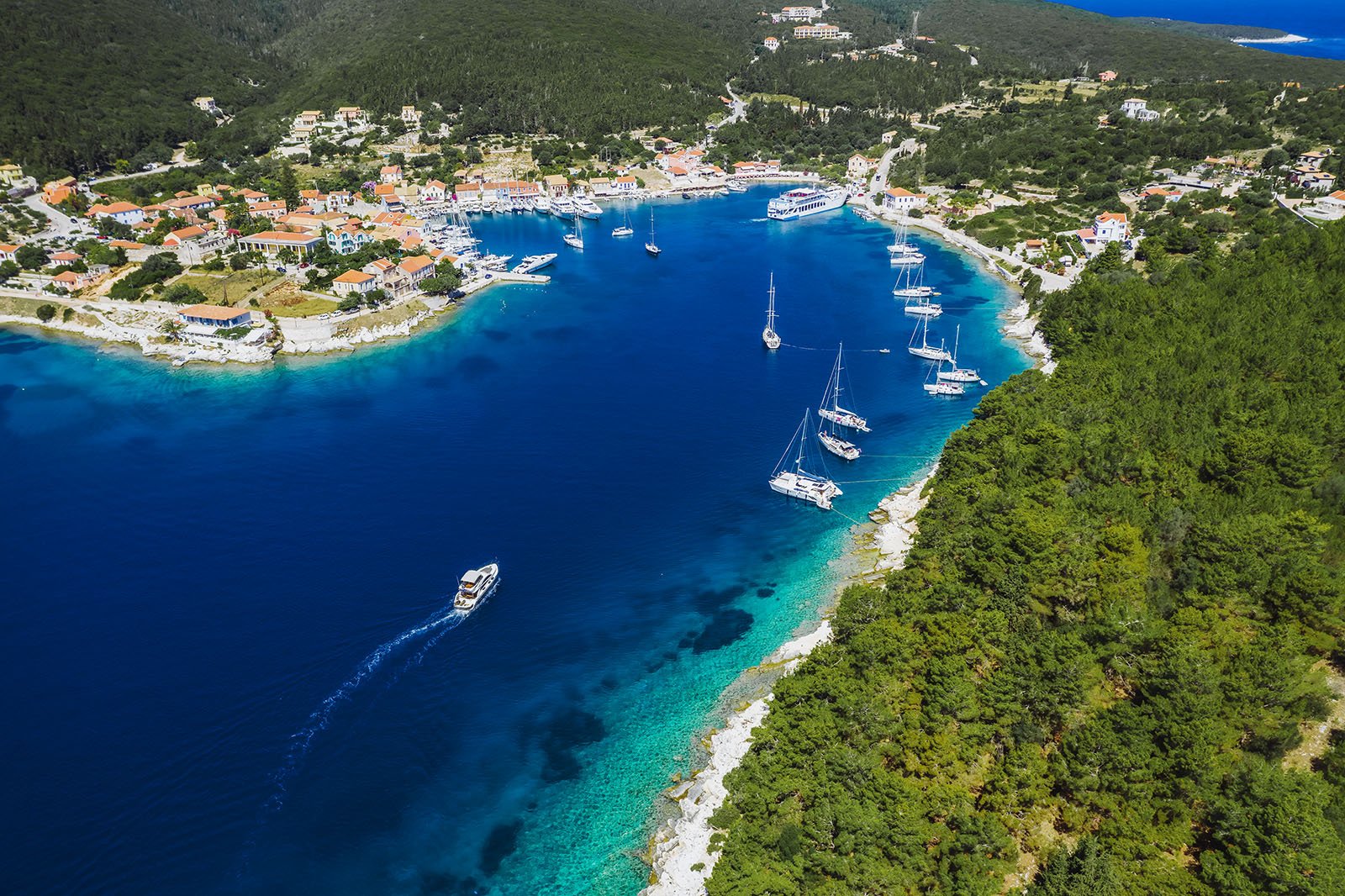
Fiscardo
Located at the North edge of Kefalonia, Fiscardo probably owed its upcoming bright future to Robert Guiscard (try imagining Alain Delon), a duke from Normandy, who first set his foot here in 1084.
Even though in his early ‘70s, Guiscard was still unquestionably handsome, tall and impressive as a Kefalonian fir, with eyes like the colour of Melissani cave lake at noon, he probably left such an impression on the local population, so they decided to rename the Panormos village to Fiscardo, after his last name, Guiscard-Fiscard.
Robert Guiscard left his footprint also in art and literature. Two centuries after his adventures in Kefalonia, Dante wrote his most important work, the Divine Comedy. The author placed Guiscard’s spirit in the Heaven of Mars, along with other “warriors of the faith” who exemplify the cardinal virtue of fortitude.
Fast forward almost 700 years later to August 12th, 1953, when the Island experienced its biggest earthquake to date. Some believe that the faithful “virtue of fortitude” was crucial for Fiscardo to come out unscratched and undamaged.
Fiscardos’s lucky fate over the centuries might be the reason why visitors get to admire today its beautiful, colourful, and charming architecture.
What did that mean for Fiscardo as a tourist destination? Everything. All this beautiful, colorful, charming architecture that you all admire, photograph, and finally consume stayed there due to Fiscardo’s lucky fate.
Nowadays, the small amphitheatre shaped port is not big enough to host all the yachts that would like to enjoy this unique atmosphere. The lucky visitors who find accommodation in the area are blessed with delicious food in many different restaurants and friendly chats with local small shop owners.
It is no surprise that many return the next year.



